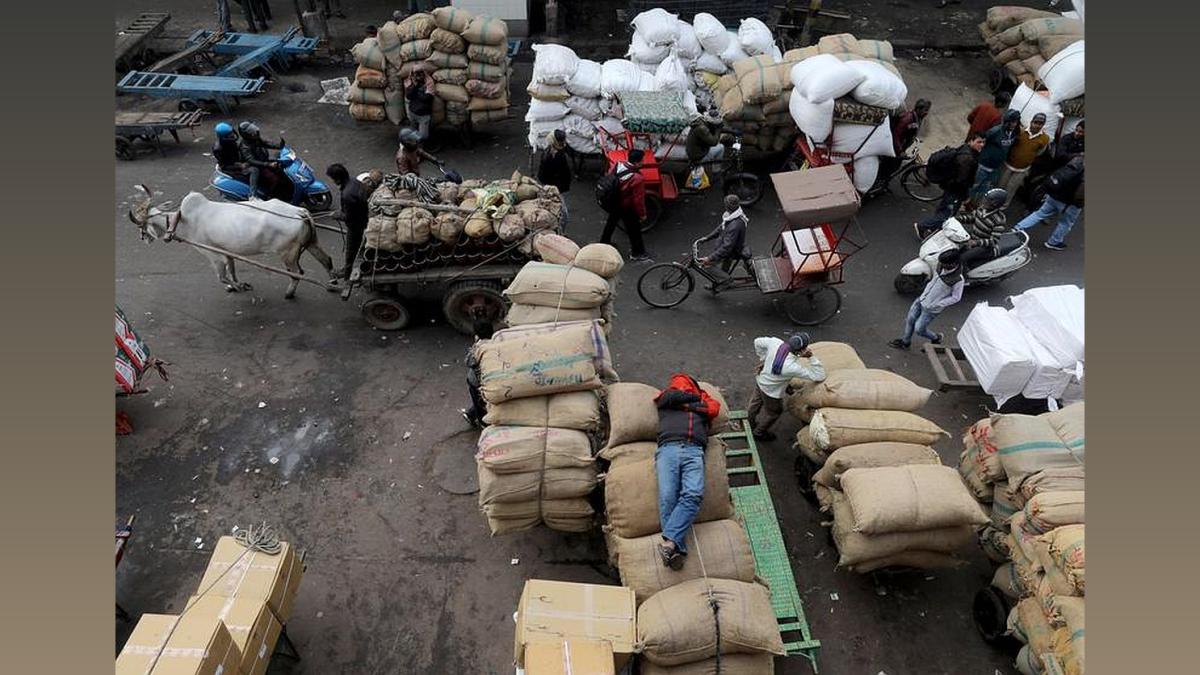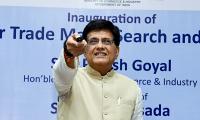Credit Rating Agencies Need Transparency: CEA
CEA criticizes global credit rating agencies' methodologies as biased against developing nations, advocating for greater transparency and reform.

New Delhi, Dec 21 (PTI) The methodologies used by global credit rating agencies are heavily loaded against developing nations and there is a pressing need to reform the rating process to make them more transparent, according to an article written by Chief Economic Adviser V Anantha Nageswaran and Senior Adviser Rajiv Mishra.
They also said that India's sovereign rating has remained at 'BBB-' for the last 15 years though it has become the world's 5th largest economy from the 12th place about a decade ago.
The article is part of the compendium titled 'Re-Examing Narratives--A Collection of Essays' prepared by the office of CEA. The views expressed by the authors are personal and not that of the finance ministry.
Over-reliance on non-transparent qualitative factors, including perceptions, value judgements, views of a limited number of experts, and surveys with loose methodologies in sovereign rating, results in unacceptable outcomes from a global point of view, Nageswaran and Mishra said.
"It makes the rating of developing countries almost invariant with respect to even sizeable movements in relevant macroeconomic fundamentals. This happens because the base rating, estimated through quantitative scoring of macro-fundamentals, is overridden by qualitative considerations while finalising the published ratings," the article said.
Further, it said the set of loose qualitative information fed into the quantitative scoring of countries and the final qualitative overlay, based purely on the agency's subjective assessment of the countries' ability and willingness to pay, become heavily loaded against the developing countries.
The rating of India remained static at 'BBB-' during the last 15 years, despite it climbing the ladder from being the 12th largest economy in the world in 2008 to the 5th largest in 2023, with the second highest growth rate recorded during the period among all the comparator economies, it said.
"Thereby, any improvement in macro-economic parameters may virtually mean nothing for a credit rating if qualitative parameters are judged to be in need of improvement. This has serious implications for developing sovereigns' access to capital markets and ability to borrow at affordable rates," as per the article.
Sovereign ratings presently act as a ceiling in attracting the necessary funds, influencing the borrowing costs, and adversely affecting the bargaining power of developing countries versus private financiers.
The article said given that private capital has a larger role to play in addressing global challenges over the coming decades, even a small reduction in the cost of borrowing for developing countries would go a long way.
"Reforming the sovereign rating methodology to more accurately reflect a developing nation's default risk has the potential to save billions of dollars for borrowing countries. Thus, bringing about positive transformations in the rating process through greater accuracy and transparency has never been more crucial than it is now," it said.
In another article in the compendium, the authors said India is cognizant of collective responsibility and has taken up ambitious targets through its NDCs (Nationally Determined Contributions) and net-zero 2070 announcement.
The extent to which India can contribute to the global response is largely conditional on the availability of the means of implementation -- finance, capacity and technology -- in a timely, adequate and suitable manner, they said.
"So far, developing countries like India have consumed their domestic resources to fight or adapt to climate change. It is in the interest of all that the parts of the world that are vulnerable to the ill effects of climate change and those with other developmental priorities are provided with these means of implementation," the article said.
Further, it said this resource flow would need to be in addition to what is required for other development priorities.
Nevertheless, the development agenda should not be put on the back seat in the wake of climate action as development and growth would only generate better resources for a more motivated climate action plan, it said.
Observing that climate change requires a global response, the article said that any national or regional response will inevitably be narrowly focused and will miss the wood for the trees.
The efficacy of such measures in reducing emissions is questionable in and of itself, for these measures may only shift the source of emissions of these regions/countries from consumption to production, it noted.
"In the medium to long run, there is no trade-off, in fact. Economic growth generates domestic resources for investment in climate adaptation and energy transition, including in Research and Development," the article said.
Reliance on domestic resources is also a matter of macroeconomic and financial sovereignty and stability, it said, adding that ensuring economic recovery and post-Covid re-acceleration in economic growth in low income and developing economies is a moral imperative for advanced nations.
Debt burdens faced by several nations, and the investment needs to meet non-climate-related sustainable development goals and climate-related goals call for the restoration of economic growth, it said.
In that context, the article said the reality that imposing energy transition obligations will lower the prospect of economic recovery cannot be wished away.
It has to be squarely faced, accepted and optimal solutions found. The alternative is a collapse in trust between nations and a collapse of mitigation efforts, with far graver consequences for a liveable planet, the article said.
They also said that India's sovereign rating has remained at 'BBB-' for the last 15 years though it has become the world's 5th largest economy from the 12th place about a decade ago.
The article is part of the compendium titled 'Re-Examing Narratives--A Collection of Essays' prepared by the office of CEA. The views expressed by the authors are personal and not that of the finance ministry.
Over-reliance on non-transparent qualitative factors, including perceptions, value judgements, views of a limited number of experts, and surveys with loose methodologies in sovereign rating, results in unacceptable outcomes from a global point of view, Nageswaran and Mishra said.
"It makes the rating of developing countries almost invariant with respect to even sizeable movements in relevant macroeconomic fundamentals. This happens because the base rating, estimated through quantitative scoring of macro-fundamentals, is overridden by qualitative considerations while finalising the published ratings," the article said.
Further, it said the set of loose qualitative information fed into the quantitative scoring of countries and the final qualitative overlay, based purely on the agency's subjective assessment of the countries' ability and willingness to pay, become heavily loaded against the developing countries.
The rating of India remained static at 'BBB-' during the last 15 years, despite it climbing the ladder from being the 12th largest economy in the world in 2008 to the 5th largest in 2023, with the second highest growth rate recorded during the period among all the comparator economies, it said.
"Thereby, any improvement in macro-economic parameters may virtually mean nothing for a credit rating if qualitative parameters are judged to be in need of improvement. This has serious implications for developing sovereigns' access to capital markets and ability to borrow at affordable rates," as per the article.
Sovereign ratings presently act as a ceiling in attracting the necessary funds, influencing the borrowing costs, and adversely affecting the bargaining power of developing countries versus private financiers.
The article said given that private capital has a larger role to play in addressing global challenges over the coming decades, even a small reduction in the cost of borrowing for developing countries would go a long way.
"Reforming the sovereign rating methodology to more accurately reflect a developing nation's default risk has the potential to save billions of dollars for borrowing countries. Thus, bringing about positive transformations in the rating process through greater accuracy and transparency has never been more crucial than it is now," it said.
In another article in the compendium, the authors said India is cognizant of collective responsibility and has taken up ambitious targets through its NDCs (Nationally Determined Contributions) and net-zero 2070 announcement.
The extent to which India can contribute to the global response is largely conditional on the availability of the means of implementation -- finance, capacity and technology -- in a timely, adequate and suitable manner, they said.
"So far, developing countries like India have consumed their domestic resources to fight or adapt to climate change. It is in the interest of all that the parts of the world that are vulnerable to the ill effects of climate change and those with other developmental priorities are provided with these means of implementation," the article said.
Further, it said this resource flow would need to be in addition to what is required for other development priorities.
Nevertheless, the development agenda should not be put on the back seat in the wake of climate action as development and growth would only generate better resources for a more motivated climate action plan, it said.
Observing that climate change requires a global response, the article said that any national or regional response will inevitably be narrowly focused and will miss the wood for the trees.
The efficacy of such measures in reducing emissions is questionable in and of itself, for these measures may only shift the source of emissions of these regions/countries from consumption to production, it noted.
"In the medium to long run, there is no trade-off, in fact. Economic growth generates domestic resources for investment in climate adaptation and energy transition, including in Research and Development," the article said.
Reliance on domestic resources is also a matter of macroeconomic and financial sovereignty and stability, it said, adding that ensuring economic recovery and post-Covid re-acceleration in economic growth in low income and developing economies is a moral imperative for advanced nations.
Debt burdens faced by several nations, and the investment needs to meet non-climate-related sustainable development goals and climate-related goals call for the restoration of economic growth, it said.
In that context, the article said the reality that imposing energy transition obligations will lower the prospect of economic recovery cannot be wished away.
It has to be squarely faced, accepted and optimal solutions found. The alternative is a collapse in trust between nations and a collapse of mitigation efforts, with far graver consequences for a liveable planet, the article said.
You May Like To Read
TODAY'S MOST TRADED COMPANIES
- Company Name
- Price
- Volume
- Vodafone-Idea-L
- 11.65 (+ 3.56)
- 106772451
- Alstone-Textiles
- 0.28 ( -3.45)
- 44187760
- Mangalam-Industrial
- 0.88 ( -2.22)
- 39177573
- Sunshine-Capital
- 0.27 (+ 3.85)
- 35956340
- GMR-Airports
- 104.40 (+ 6.37)
- 30453005





